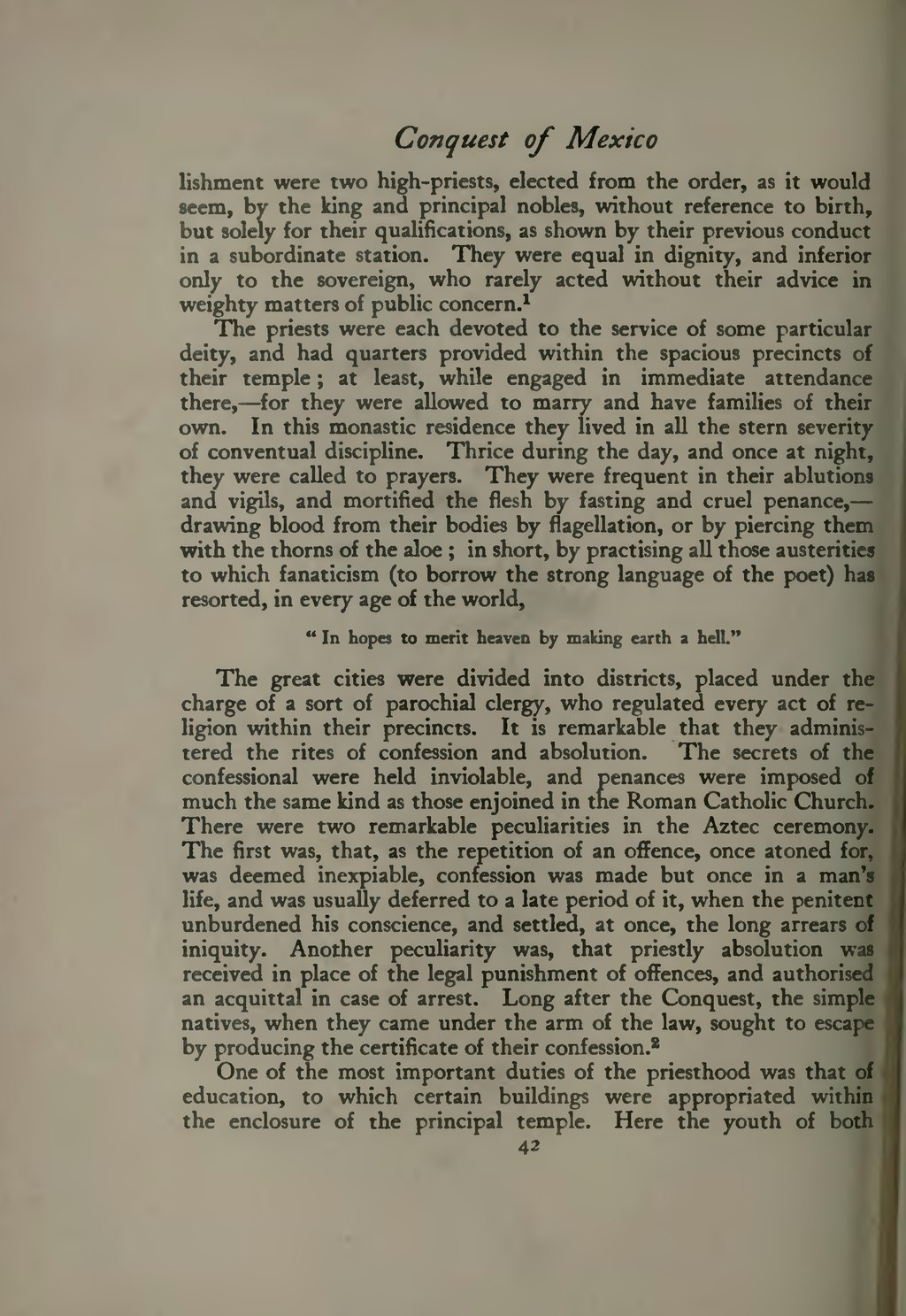Conquest of Mexico
lishment were two high-priests, elected from the order, as it would seem, by the king and principal nobles, without reference to birth, but solely for their qualifications, as shown by their previous conduct in a subordinate station. They were equal in dignity, and inferior only to the sovereign, who rarely acted without their advice in weighty matters of public concern.1
The priests were each devoted to the service of some particular deity, and had quarters provided within the spacious precincts of their temple; at least, while engaged in immediate attendance there,—for they were allowed to marry and have families of their own. In this monastic residence they lived in all the stern severity of conventual discipline. Thrice during the day, and once at night, they were called to prayers. They were frequent in their ablutions and vigils, and mortified the flesh by fasting and cruel penance,—drawing blood from their bodies by flagellation, or by piercing them with the thorns of the aloe; in short, by practising all those austerities to which fanaticism (to borrow the strong language of the poet) has resorted, in every age of the world,
"In hopes to merit heaven by making earth a hell."
The great cities were divided into districts, placed under the charge of a sort of parochial clergy, who regulated every act of religion within their precincts. It is remarkable that they administered the rites of confession and absolution. The secrets of the confessional were held inviolable, and penances were imposed of much the same kind as those enjoined in the Roman Catholic Church. There were two remarkable peculiarities in the Aztec ceremony. The first was, that, as the repetition of an offence, once atoned for, was deemed inexpiable, confession was made but once in a man's life, and was usually deferred to a late period of it, when the penitent unburdened his conscience, and settled, at once, the long arrears of iniquity. Another peculiarity was, that priestly absolution was received in place of the legal punishment of offences, and authorised an acquittal in case of arrest. Long after the Conquest, the simple natives, when they came under the arm of the law, sought to escape by producing the certificate of their confession.2
One of the most important duties of the priesthood was that of education, to which certain buildings were appropriated within the enclosure of the principal temple. Here the youth of both
42

